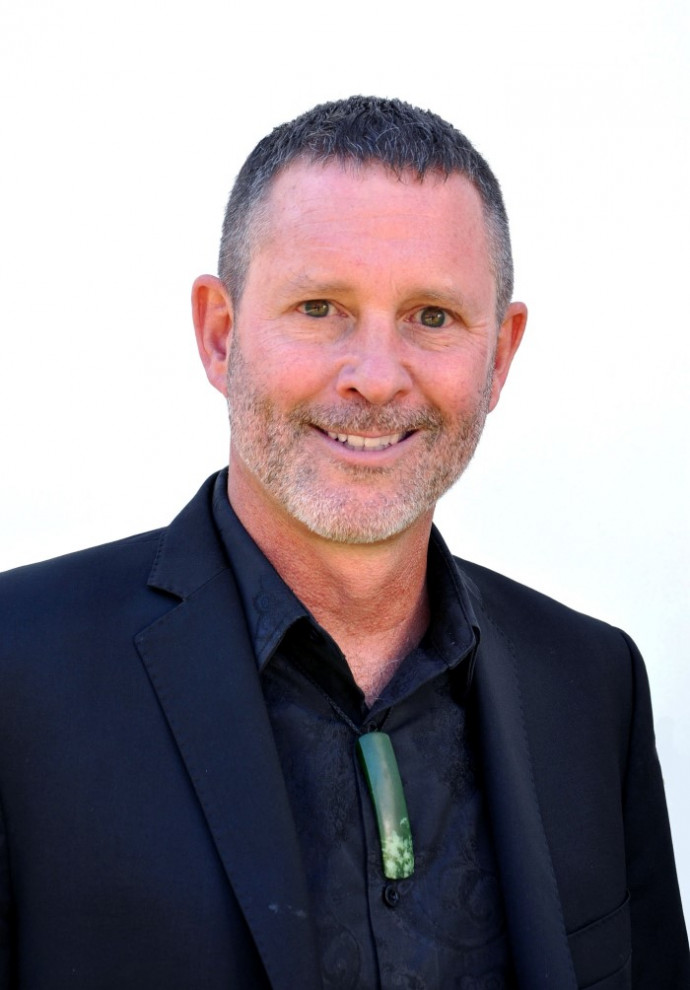2023 Mason Durie Medal: What’s in a word? Language rights and revitalisation of Indigenous languages

Professor Stephen May FRSNZ has been awarded the Mason Durie Medal for his work on language rights and revitalisation, spanning the disciplines of applied linguistics, sociolinguistics, sociology, political theory, law, and education.
His research focuses on how modern nation-states can best manage diversity in this increasingly globalised and superdiverse age, particularly in relation to language and education policy, and in light of Indigenous and multicultural obligations and commitments.
Stephen is regarded as a world authority on language rights and has pioneered groundbreaking work in the areas of Indigenous language revitalisation, bilingual education, critical multiculturalism, and the shift from a monolingual to a multilingual perspective in research, and the teaching and learning of languages (known as “the multilingual turn”).
He is renowned for bridging divides to reopen previously closed academic discussions. His work also traverses and links theory, policy, and practice.
His award-winning interdisciplinary books, Language and Minority Rights (2012, 2nd ed.) and The Multilingual Turn (2014), have redefined the fields of language rights, language policy, and language education.
His fresh and innovative arguments in language rights and education have been supported by his extensive hands-on work on revitalisation of te reo Māori, Navajo, Welsh, Catalan, and Basque languages, as well as Pacific languages in both Aotearoa New Zealand and Oceania, Quebecois French in Canada, and Spanish in the United States of America.
Stephen’s interdisciplinary reach and influence are also evident in his pioneering work in critical multiculturalism, integrating and advancing various critical theoretical threads such as antiracist education, critical race theory, and critical pedagogy to offer a better analysis of and institutionalisation of unequal power relations in education.
A nomination supporter says one of the most significant insights from Stephen’s scholarship is that his analyses are never solely about language education but always connect to the politics of representation, power, inclusion, and exclusion.
His work has been influential far and wide – from Aotearoa’s policy on language education to international academic and legal forums on linguistic human rights.
Stephen’s work has been used by his colleagues as a state-of-the-field guide to best practices.
“I cite it always as a seminal meta-analysis of research, theory, and practice, and have included it in expert testimony before the U.S. Senate Committee on Indian Affairs on language rights and bilingual/immersion education,” one colleague added.
“Through his tireless industry and unwavering brilliance, Professor May has inspired and guided countless minoritised language education researchers and teachers around the globe in their scholarship, practice, and most importantly, the quest for a more socially just world,” another nomination supporter added.
“He has brought great distinction to language education research.”
Stephen comments on his award: “It is an incredible honour to receive the Mason Durie Medal, particularly given the pioneering influence of Prof Durie’s work in Māori and Indigenous research over many years, which has informed my own and so many others’ ongoing work in these areas.”
“In this sense, I am very mindful that the work I do simply could not have been accomplished without the whanaungatanga, tautoko, and āwhina of my colleagues, particularly in Te Puna Wānanga (School of Māori and Indigenous Education) at Waipapa Taumata Rau/University of Auckland.”
“However, I also want to acknowledge all those I have worked with nationally and internationally over the years to explain, defend, support and promote the importance of Indigenous language revitalisation and education, as well as the right to bi/multilingual education for these and other language speakers.”
“Ehara taku toa i te toa takitahi. Engari, he toa takitini”.
Mason Durie Medal:
Recognising an outstanding contribution to the social sciences that, while originating in New Zealand, has had an international impact.
Citation:
To Stephen May for pioneering groundbreaking work in language rights, and the related fields of Indigenous language revitalisation, bilingual education, critical multiculturalism, and the multilingual turn in language learning.
